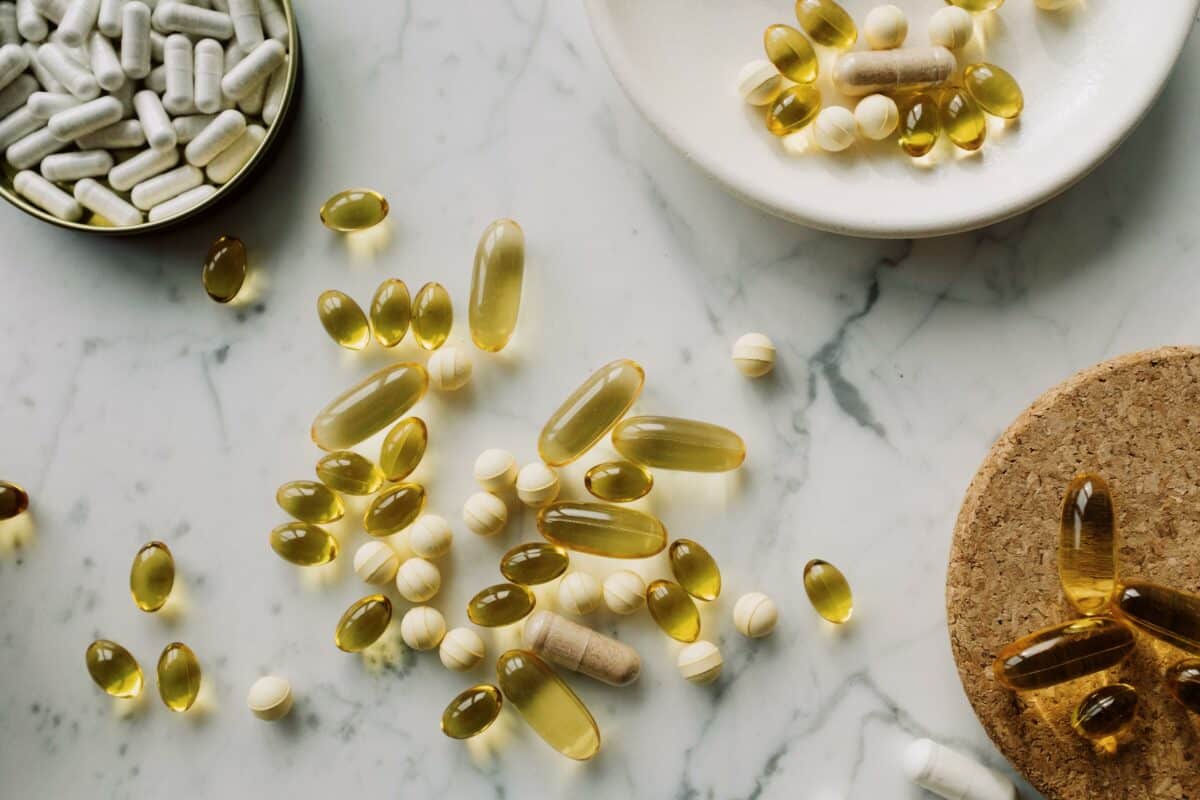What Supplements Do Women Need?
Table of Contents
Dietary supplements aren’t a luxury item for women anymore. They’re a necessity.
Study after study shows us that women don’t get enough vitamins and minerals and the lack keeps them feeling a sense of unwellness. They may be constantly fatigued, not on top of their mental game, moody or experiencing melancholy, slow to react to conversations, losing sleep each night, feeling joint pains and muscle aches, and more. And although these issues mentioned may be due to many different causes, one of the underlying reasons they occur and continue occurring is due to poor nutrition.

How can I have poor nutrition if I eat a good or outstanding diet?
To a large extent, society determines what a good diet is. In the 1970s, a good diet was one that included four food groups. In the 1980s, a good diet was one that was low fat. Years later, we learned that not having enough fat in the diet meant that your reproductive hormones wouldn’t be made in the right amounts. And that caused problems.
In more recent years, there’s been a switch to keto diets and intermittent fasting. Keto diets are notoriously low in minerals and intermittent fasting if done long enough can cause bone loss.
The problem is that there must be another way to determine what diet you should be eating. And the most recent method to determine that is to trace the connections to diet that work with your body through your genetics. But again, this is one more ‘fad’ that may or may not work, and what it doesn’t provide for you still remains to be seen.

How can I know how I’m doing nutritionally?
The way you can know exactly how you are doing with regards to nutritional status is to have testing done that monitors your nutritional health.
The way top athletes stay in the elite category is they are constantly monitored for different aspects of their health – and sporting performance. Nutrition for them is critical. If their bodies are anemic, they will never be able to compete in long-distance events. The lack of oxygen will cut their endurance remarkably.
You are the top athlete of your own life. You are constantly progressing forward, creating new projects – whether they are family or work, or community related. By treating yourself as an ‘athlete’ and monitoring your nutritional status, you can outdo your own performance past your imagination. Getting all the right nutrients you need is that important!
Can’t I just take supplements my mom takes?
You can take many types of supplements, carefully considering them, and researching them on your own, but unless your own body needs the supplement, it really won’t do you any good and may actually do some harm.
There’s a concept called biochemical individuality in nutrition that was discovered decades ago by Roger Williams. His main premise is that the nutritional and chemical make-up of each person is unique. Dietary and other needs, therefore, vary from person to person.
A vitamin C supplement won’t improve your immunity much if your zinc, vitamin A, and vitamin D levels stay low. In nutrition, all nutrients work together. Taking super high amounts of vitamin C could interfere with the absorption of vitamin B12.
Taking high doses of vitamin D could deplete magnesium, boron, and vitamin K levels. Taking high doses of only one of the B vitamins such as folate, vitamin B6, vitamin B12, or even biotin without all the rest of the B vitamins could deplete the ones not taken.
Is it a myth that we need supplements?
Have you heard these sayings before:
- You don’t need supplements if you eat right.
- Supplements just pass right through you. They aren’t absorbed.
- Everyone needs vitamin D supplements.
- Supplements could be what takes your health to the next level.
- Women should always take a prenatal.
All these statements are quite commonly heard, but what’s not heard is the details about them that increase your understanding. And frankly, they bring up a lot of other questions:
- Who eats right all the time so they don’t need supplements?
- If supplements weren’t absorbed, then why would iron supplements be prescribed by doctors and can cause toxicity and a trip to the Emergency Room if little children consume them?
- How would I know I don’t need vitamin D after taking it for a while?
- Will supplements give me more energy and get me out of bed in the morning?
- Are all prenatals okay for me to take, or should I consider what my own body needs?
There are myths out there about supplements – and they depend on lack of knowledge on nutrition – and no training on nutrition from your health professionals.
Does my health depend on my nutritional status?
In life, one of the bottom-line things to know that will never change is this: your body needs vitamins and minerals in order to survive. If you don’t get enough vitamins or don’t get enough minerals, you will end up dying – plus feeling miserable every day until you die.
If you don’t get enough vitamin A, for example, your eyesight will get worse and worse. You might not die from bad vision, but you could die from not seeing the red traffic light. While your eyesight was worsening, all your mucosal membranes in your lungs and GI tract, and vagina were getting weaker and weaker each day. This left you susceptible to infection. And some infections can kill us. When you don’t get enough of a vitamin or mineral, you will have a deficiency. When you get too much, that vitamin or mineral can go to a toxic level.
How healthy you feel today depends on your nutritional status and the levels of vitamins and minerals in your blood that are feeding your organs. And the only way you can know what you truly need is to monitor levels once a year.
Do women have different nutritional needs than men?
Each physiological phase in your life has particular nutritional needs. When you were growing in the womb, your growth and development draws from your mother’s nutrient levels. When you are a baby and going through growth spurts, there are different nutritional needs as well. When you are pregnant or nursing, your nutrient needs are greater than if you weren’t pregnant. And when you are going through menopause, there are even different needs. Matching your personal needs to the requirements of each phase is important.
Disclaimer
NeoRhythm has not been evaluated by the FDA. These products do not claim to diagnose, treat, cure, or prevent any medical conditions. Always consult your medical doctor regarding any health concerns.

